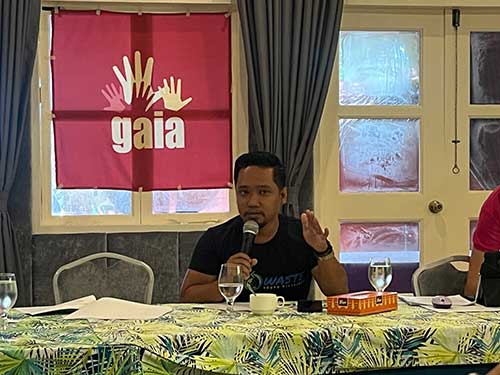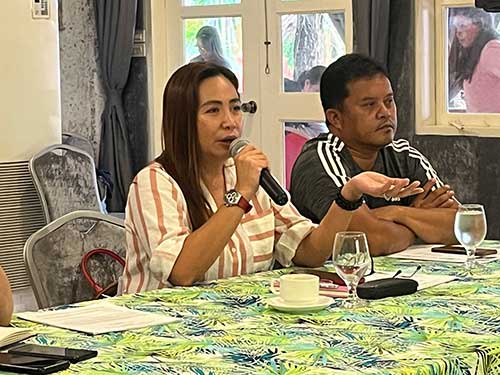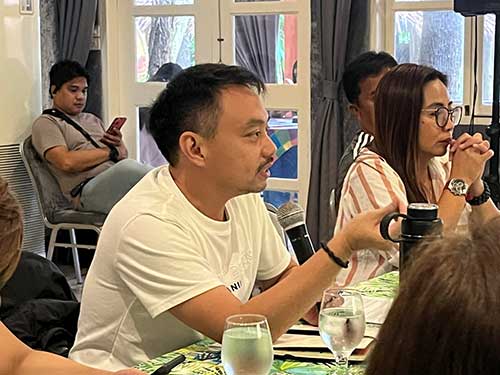Roxas City, Capiz, has officially joined the Philippine chapter of the Zero Waste Cities Network (ZWCN), marking a significant step toward sustainable waste management.
The initiative unites local government officials and zero waste advocates in a concerted effort to address the nation’s growing waste problem.
Supported by GAIA Asia Pacific, Mother Earth Foundation, Urban Movement Innovation (UMI), and the Global Methane Hub (GMH), ZWCN-Ph aims to promote Zero Waste principles nationwide.
ZWCN-Ph includes representatives from various regions, including San Fernando in Pampanga, Malabon and San Juan in Metro Manila, Barangay Tanza in Navotas City, Pilar in Bataan, Siquijor Province, Barangay Apo Island in Dauin, Negros Oriental, and Roxas City.
The collaboration is part of a global campaign to establish Zero Waste practices as the optimal solution to waste management challenges, such as the plastic crisis, while challenging the misconception that incineration effectively eliminates waste.
“The Philippine Zero Waste Cities Network aims to foster a supportive community, share stories, and advocate for sustainable solutions. With emphasis on good governance, we can ensure that the rights of our communities are protected and that our environment is preserved for future generations,” said Mei-Ling Quezon, Vice Governor of Siquijor and elected chair of ZWCN-Ph.
This network’s launch is timely as the Philippines faces a daunting waste crisis, generating at least 61,000 metric tons of waste daily, with only a fraction properly disposed of.
Despite the incineration ban, waste-to-energy (WtE) solutions are being proposed, posing health, social, and economic risks.
Success stories from ZWCN-Ph communities illustrate the potential of Zero Waste strategies.
Siquijor, the Philippines’ first Zero Waste province, has banned small plastic bottles and introduced a glass bottle-refill system. San Fernando, Pampanga, boasts a 90% waste diversion rate, conserving valuable resources.
ZWCN-Ph has embraced Environmental Justice principles, reflecting its commitment to sustainable practices and community rights.
The network prioritizes efficient waste management, reintegrating resources into productive cycles, and avoiding landfilling or incineration, yielding long-term environmental and economic benefits.
At their inaugural Board meeting, ZWCN-Ph resolved to urge the Philippines Climate Change Commission (CCC) to integrate Zero Waste into national climate strategies, support the Magna Carta for Waste Workers, institutionalize environment and natural resources offices (ENROs) in every local government, and develop training programs for zero waste strategies.
Hon. Benedict Jasper Lagman, President of ZWCN-Ph and Vice Mayor of San Fernando, Pampanga, invites cities and local governments to join.
“Together, we will work to enhance national policies for practical, equitable implementation and advocate for statutory funding to ensure all regions are on equal footing. We will share best practices and experiences to tackle environmental issues collectively, empowering communities to overcome challenges,” he said.
Sonia Mendoza, Chair of Mother Earth Foundation, praised the initiative.
“Leaders from Zero Waste model communities across the country are coming together to emphasize that beyond waste management – they are building a movement. The collective effort of cities and champions gives us hope. Through their example and experience, we can mitigate the climate crisis, reduce methane emissions, and empower Philippine cities and municipalities to address environmental challenges. Embracing Zero Waste principles contributes to global sustainability goals, paving the way for resilient and thriving communities nationwide,” she said.























